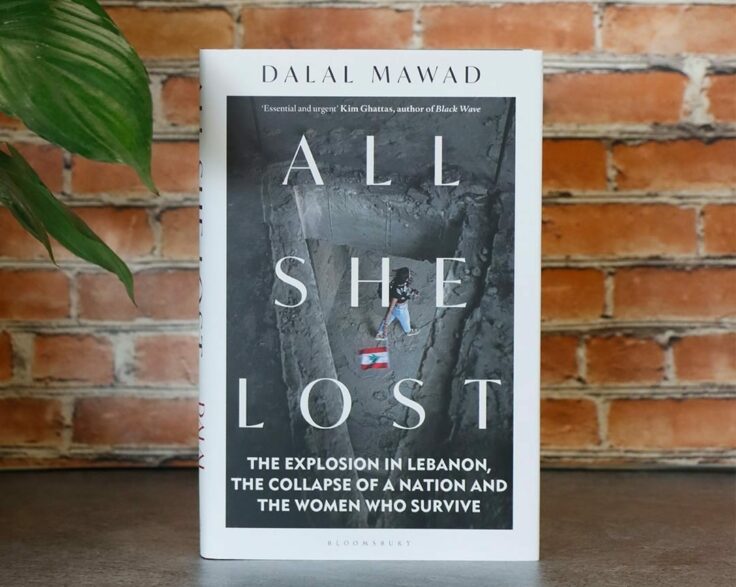Lebanon’s modern history has been marked by war, severe economic collapse, and constant calamities Just three-years-ago, Beirut was devastated by a catastrophic port explosion on Aug. 4, 2020 that the country is still reeling from. Thousands lost their loved ones and many were left without a home, all while grappling with an ongoing economic decline and dealing with the devastation of a place they call home. Award-winning Lebanese journalist and professor Dalal Mawad, tells the tale of Lebanon in her most recent book release, All She Lost, a book by women for women.
We’re so used to seeing men in positions of power and privilege narrate the telling of histories and atrocities that scour the Middle East. Oftentimes, the narrative is far-fetched, spewing sentiments of misconstrued heroism and triumph, as opposed to giving a voice to those that are truly in need of one. And, that is what makes All She Lost so special as Mawad tells the story of Lebanon through an all-female perspective. The book is a collection of testimonies by women only, detailing stories about the survivors and the ongoing pain they endure.
Tracing it back to the Ottoman rule to the recent economic collapse and the Lebanese people’s fight to bring those responsible for the 2020 Beirut port explosion to justice, Mawad provides a comprehensive political history of modern Lebanon. Dalal also presents a summary of the Levantine country’s sectarian factions and the constant discrimination women face, from unjust marriage and inheritance laws to extreme cases of men kidnapping their children to take full custody in times of divorce. She gives real life examples of how women in Lebanon are continuously marginalized and discriminated against by laws controlled by an undeniable patriarchy.
The women Mawad speaks to come from all walks of life, and include domestic workers, lawyers, and refugees, who open up about the pain, grief, and loss they have endured pre and post the explosion. More than ever, the book highlights the drastic systemic inequities that women continuously experience by men in positions of power. All She Lost is powerful as much as it is personal, and through every story, the author unravels a fraction of her own trauma following the explosion.
In an Instagram post Mawad says, ”This is dedicated to every woman in this book and beyond, every woman who has opened up to me the past 3 years; the women of Lebanon and the Arab world who are lurching from one crisis to another, never healing, doomed to protracted violence and yet still surviving and fighting. May you find peace and Justice.”
Mawad, working at the Associated Press at the time, was one of the first to report on the aftermath of the explosion. After the blast, she moved to Paris in hopes of raising her daughter in less dangerous circumstances– she now works as a producer for CNN. She will also be hosting a documentary series with Kerning Cultures called The Lebanon Heist— a 6-part podcast investigating the root causes of Lebanon’s devastating financial crisis, a crash among the worst globally since the mid-nineteenth century that led to millions of Lebanese citizens being robbed of their life savings.









